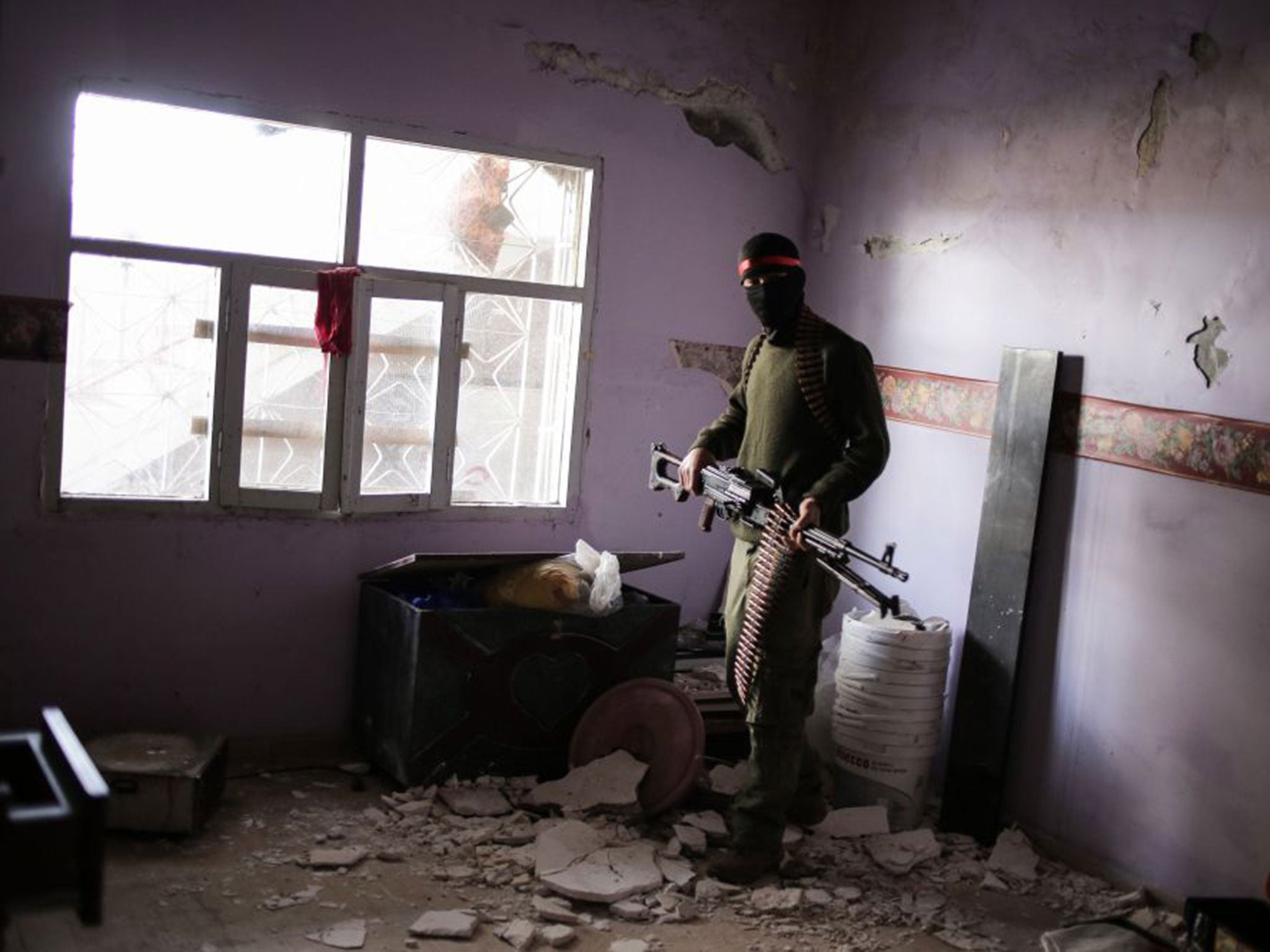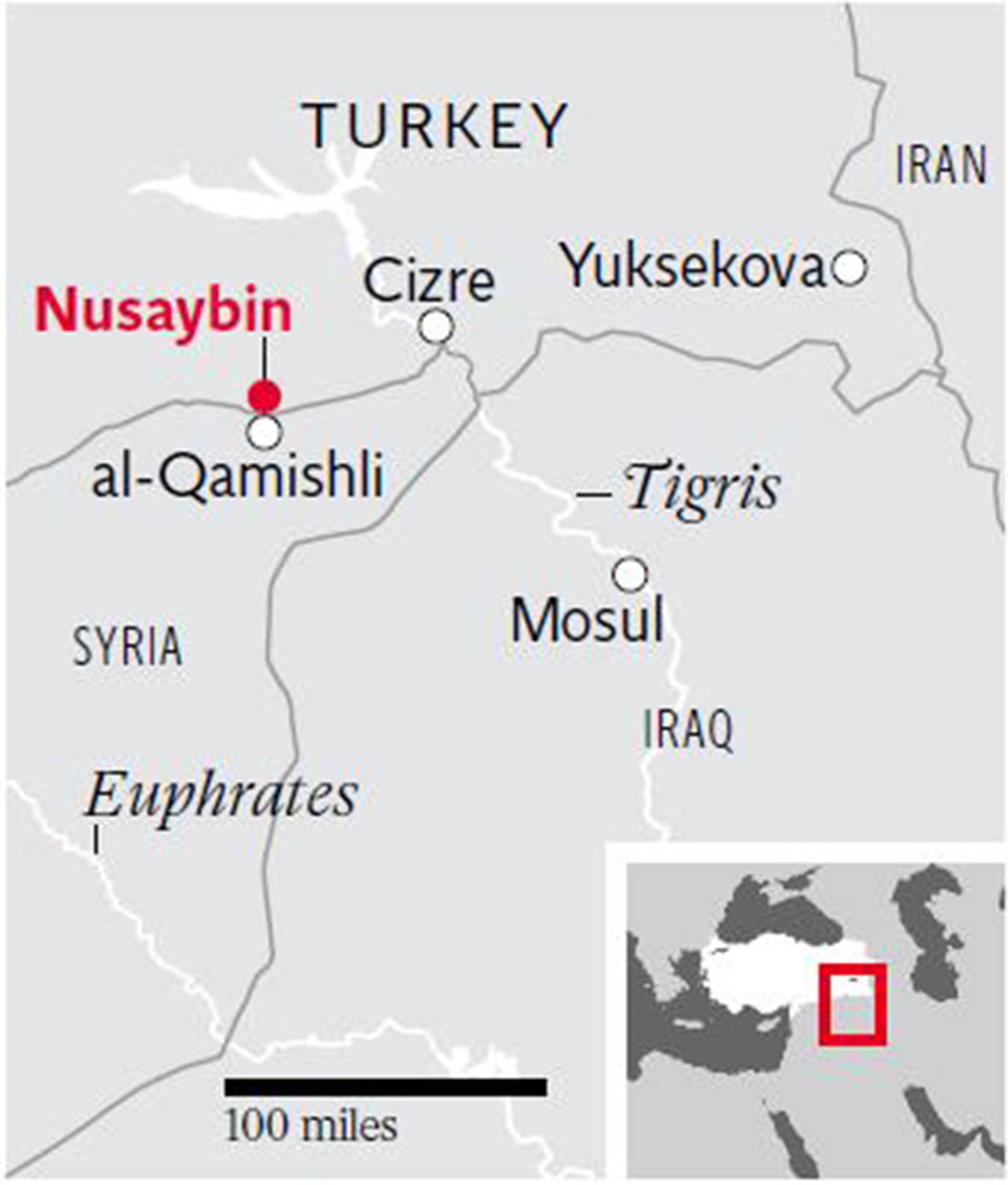Nusaybin, the Turkish city where war is now a way of life
As a government curfew is imposed, Kurdish fighters show no signs of giving in

Your support helps us to tell the story
From reproductive rights to climate change to Big Tech, The Independent is on the ground when the story is developing. Whether it's investigating the financials of Elon Musk's pro-Trump PAC or producing our latest documentary, 'The A Word', which shines a light on the American women fighting for reproductive rights, we know how important it is to parse out the facts from the messaging.
At such a critical moment in US history, we need reporters on the ground. Your donation allows us to keep sending journalists to speak to both sides of the story.
The Independent is trusted by Americans across the entire political spectrum. And unlike many other quality news outlets, we choose not to lock Americans out of our reporting and analysis with paywalls. We believe quality journalism should be available to everyone, paid for by those who can afford it.
Your support makes all the difference.Even before the Turkish government declared a curfew on Sunday, quiet was the most noticeable feature of the war being waged in Nusaybin.
Barricades intended to keep the Turkish army at bay marked off the quarter of the city on the Syrian border overrun by Kurdish fighters, who had taken up arms against the Turkish government. Behind them, the streets were almost silent. Gone were the sounds of cars and the shouts of shop owners and civilians who had fled, closing their businesses and homes behind them.
Sometimes the quiet was punctuated by sounds of war. Children alongside female soldiers at a guard post no longer acknowledged the whistle of bullets over their heads, nor the occasional crack of a sniper. The women too, though some had only recently become fighters, seemed unperturbed.
Young men walked the streets with pistols in their waistbands; a commander, a Kalashnikov at his side, sat and smoked with his men in a garage. They were members of the militant “Civil Defence Units” or YPS, linked to the Kurdistan Workers’ Party, the PKK, a separatist organisation designated a terror group by the US, the EU and Turkey.
Children played outside abandoned houses where Kurdish fighters had stashed rocket launchers. The roads had been torn up to build barricades; holes had been cut in walls to allow fighters to move through, unobserved; tunnels had been dug beneath the streets and tarpaulins were stretched across alleyways to act as blinds against snipers.
Outside Nusaybin, a car bomb that killed two police officers and injured 35 others was blamed on Kurdish guerrillas. Because of the fighting that he claimed has caused civilian casualties, “no one really goes out after sunset,” said Redur, a Kurdish artist and shop owner who, like many others, asked that his full name not be used. “In the last eight months, since the war started, it’s been like this all the time.”
On Sunday, the Turkish army positioned tanks around Nusaybin and another Kurdish town, Yuksekova, in preparation for an expected offensive to drive the Kurdish fighters back out. Many civilians packed their cars and fled, but the fighters remained.
Nusaybin, a city of almost 100,000, is on the Syrian border, just across from al-Qamishli, a Syrian city now controlled by the Kurdish YPG. Much of Nusaybin is under control of the Kurdish fighters of the YPS. Some are from Nusaybin itself; others have probably come from the PKK, to which the YPS looks for military advice and inspiration.

Last summer, armed conflict that had been in abeyance during peace talks with the government, resumed. “Now we are fighting – it’s a period of military action and military operations,” said one soldier, Serfiraz, 25.
The fighters cited the injustices they had felt as a part of the Turkish state for their engagement in the Kurds’ political movement. Zenda, 27, grew up in western Turkey after her family village in the majority Kurdish, south-eastern part of the country was burned by the Turkish army in 1993. She joined the YPS a month ago and still looked slightly uncomfortable with a gun in her hands.
She no longer saw politics as an effective means to advance Kurdish rights, she said. “I decided that without the whole of society being free, it’s not possible for individuals to be really free – that’s what really brought me here.” Her feelings were mirrored by male fighters who felt abused by the state.
The fighters said they did not need to talk about their long enmity with the Turkish state to explain their motives, referring instead to the recent retaking of Cizre by the Turkish government and continuing violence to which they say they are subjected by the Turkish state. “We don’t have to talk about the history,” said Xebat, 22, from Nusaybin. “In Cizre, the Turkish state, the Turkish army burned many civilians alive. This itself is a good reason to be here, to be a part of the movement, and to fight for the people here.”
Civilians throughout the region appear polarised. “Of course, [for] young Kurdish people, seeing their relatives, brothers and sisters being massacred in different parts of Kurdistan is radicalising them,” said Serfiraz, “Many young people are joining these movements… the youngsters who can take a gun and fight are already doing it now.”
Meanwhile, soldiers and fringe groups affiliated with the Kurdish movement have become more violent. And civilians who haven’t joined the movement have been afflicted by the violence. Those who can’t afford or are otherwise unable to leave the conflict zones will be trapped.
“If I leave here, I have nothing left,” said one woman in the Kurdish-controlled quarter of Nusaybin. “I really don’t care if they kill me or not, because I have no other options.”
Join our commenting forum
Join thought-provoking conversations, follow other Independent readers and see their replies
Comments